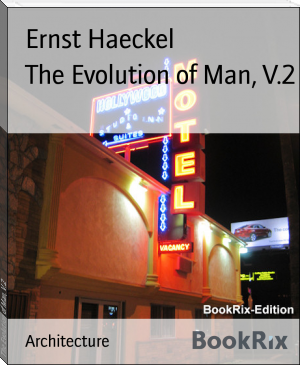The Annals of Willenhall - Frederick William Hackwood (sites to read books for free txt) 📗

- Author: Frederick William Hackwood
Book online «The Annals of Willenhall - Frederick William Hackwood (sites to read books for free txt) 📗». Author Frederick William Hackwood
Consternation reigned supreme in Willenhall; it was felt that the pass to which matters had been brought by the enormity of this latest aggravation by their enemies could only be met by an appeal to the law, which, hitherto, both factions had so recklessly set at naught. So the following public notice was promptly issued:--
10 GUINEAS REWARD.
Whereas, early on Sunday morning last, some evil disposed Persons did steal and carry away the
WEATHERCOCK from off the STEEPLE.
Any Person giving Information so that the Offenders may be apprehended, shall upon Conviction receive TEN GUINEAS REWARD over and above what is allowed by the Association for the prosecution of Felons. And as more than one were concerned, if either will impeach his Accomplice or Accomplices, they shall receive the above Reward, and every endeavour used to obtain a free Pardon.
Willenhall, July 24, 1827.
THOMAS HINCKS, JAMES WHITEHOUSE,
Chapel Wardens.
* * * * *
Bassford, Printer, Bilston.
The Notice proved totally unproductive of results, for no Darlaston man was found mean enough to betray the heroes of this daring escapade. Therefore, as the trophy of Darlastonian valour could not be recovered, and St. Giles's tower could not be left in all its nakedness without being an ever-present reproach to the Willenhallers, a new vane had forthwith to be provided for the church.
It was some time after the Willenhall pride had been thus lowered that the old weathercock was accidentally found by some miners who were re-opening an old coal pit which lay between the rival townships. Almost needless to say, the new vane was instantly fetched down, and the old one once more set up to flaunt itself as bravely as of yore in the eyes of distant Darlaston.
The good folk of Willenhall, feeling humiliated, did all in their power to cover up their shame by burying the episode in oblivion; and to this day Willenhall men will deny that the Darlastonians ever came and took away their church weathercock. By way of throwing doubt upon the historical accuracy of the incident, they point to the fact that the church at that time had no spire; it is known, however, that a vane surmounted the church tower, and there is evidence of the Reward Notice, the loose wording of which is responsible for the use of the term "steeple" to signify a tower.
The authenticity of the said Notice is always open to investigation, for a framed copy of it still hangs in the Neptune Inn, preserved as a curiosity. (This copy, probably the only one in existence, bears intrinsic evidence of being a genuine document, and is a treasured possession of the Baker family, to whom the "Neptune" property belonged, the paper having been discovered some fifty years ago in a piece of old furniture, by Mr. Phillips, a connection of his family.)
Resuming the history of the benefice, it may be observed that a doubt has been raised whether Mr. Moreton had to go through a contested election in 1788, but there can be no doubt as to an electoral struggle in 1834. Mr. Fisher soon found himself drawn into the vortex of factional strife, for he was speedily pounced upon by the home party, and very much against his will adopted as their figure-head, if not their champion.
When, on the death of Mr. Moreton, the period of Election came within measurable distance, the excitement became more intense; the patriotic supporters of Mr. White invading the Willenhall territory day after day. Such challenging and fighting, such threatenings and retaliations, surely never were known; one faction had no sooner hurled its defiance at the other than both incontinently plunged headlong into the melee, and rioting once more raged fiercely through the public streets.
Cracked sconces, broken noses, split ears and black eyes resulted by the score; to which list of casualties must be added the number of the half-drowned who had to be rescued from the canal. Onslaughts made on public-houses and other party headquarters led to a considerable destruction of property, which, however, was borne with much complacency when it was remembered that the whole Hundred would be called upon to pay the bill.
Among the candidates for the Incumbency were the Rev. R. Robinson, lecturer at the Collegiate Church, Wolverhampton, in recommendation of whom Mr. G. B. Thorneycroft wrote a letter, dating it from Chapel House in that town, 16 July, 1834; the Rev. John Howells, the Rev. Mr. Rogers, the Rev. Mr. Gwyther, and the Rev. Mr. Wenman; but the Rev. George Hutchinson Fisher, who had been Curate two and a-half years in the town, was recognised as the most formidable competitor. He was the son of a headmaster of Wolverhampton Grammar School, and an M.A. (1834) of Christ College, Cambridge. He received his nomination from Mr. Jeremiah Hartill, and there was little doubt of his ability to obtain the necessary approval of the lords of the manor and the confirmatory licence of the Dean of Wolverhampton.
At that time the Duke of Cleveland was impropriator, but the tithes had been leased by his Grace to Messrs. James Whitehouse and Charles Quinton.
As the day of battle approached public feeling ran so high that on the eve of the poll, which took place on August 5th and 6th, 1834, the Returning Officer deemed it prudent to issue the following Appeal to the Inhabitants:--
It is represented to me, from numerous quarters, that the excitement of the approaching Nomination of a Minister to your Chapel renders it imprudent to take the Poll at the time and place appointed.
Gentlemen,--I cannot but hope and believe that such fears are unnecessary; and, relying upon your good sense, I have determined not to make any alteration in the present arrangements.
I have no interest in your choice; it is my duty only to act with impartiality between all parties.
For that purpose I shall be at your Church at Ten O'clock To-morrow Morning, but unless every person entitled to vote has free and Unmolested Access to the Poll, I shall, of course, be under the NECESSITY of adjourning it.
I address myself to the friends of Each Candidate Alike, and entreating you to allow the proceedings of the day to take place with that moderation which their object and the sacred place in which we shall meet so particularly require.
I am, Gentlemen, Your faithful, humble Servant,
FRANCIS HOLYOAKE.
Tettenhall, August 4, 1834.
Needless to say, all this rowdyism and disgraceful violence were sternly reprobated by Mr. Fisher, whose rabid opponents must have come to realise that their cause was a lost one when they waylaid the polling clerk and tore his poll-book to shreds.
As to the Magistrates and the Constables, the custodians of the peace discreetly pursued a policy of the most masterly inactivity. Perhaps they felt that the resources of their command were totally inadequate to cope with an uprising of the dimensions and intensity which presented themselves to their consideration; or, maybe, they philosophically recognised that these stirring tumults were the inevitable concomitants of a parochial struggle of so momentous a character. Anyway, their attitude appears to have been justified when everything settled down quietly after the election, the Fisheries tranquilised by victory, and the White Boys dejected by defeat.
For the voting resulted easily in favour of Mr. Fisher, though the validity of his return was challenged in the Court of Chancery for some three years afterwards, during which time, however, he had no hesitation in officiating. He was a fine reader and an able speaker, his delivery of the Church ritual being a model of correct elocution.
Like his predecessor, he held the living a long time, the tenure of the two covering a century. Mr. Fisher resided for a number of years at Bentley Hall.
In 1887, soon after Mr. Fisher's "Jubilee" in Willenhall, a public movement was instituted, in which many Dissenters took part, to acknowledge his fifty years of devoted service among all classes of the community. A presentation was made to him of a silver service and his portrait in oils--the latter the work of Thomas Hill, a native of Wednesfield, and which now hangs on the walls of the Free Public Library.
[Picture: Decorative flower]
Chapater XX(The Election of 1894, and Since.)
Although St. Giles's Church is known as the Parish Church, and a church has probably been on the same site some six centuries, the church of Willenhall is really a Proprietary Chapel of Ease, and its Incumbent legally nothing more than a Perpetual Curate, or Curate in Charge, though Incumbent of Willenhall, and receiving in respect of that office a very substantial "living." The official return set forth in Crockford's Clergy Directory for 1893 was: Tithe rent charge, 640 pounds, net Income, 1,300 pounds.
Strictly, there is no St. Giles's parish, nor any parish attached to St. Giles's Church, and in law the Incumbent might, if he wished, ignore the so-called parish so long as he performed satisfactorily certain duties in the church. The unappropriated district, commonly known as St. Giles's parish, includes that part of Willenhall which has not been allocated to the properly constituted parishes (or ecclesiastical districts) of St. Stephen's, St. Anne's, and Holy Trinity, Short Heath, plus the entire civil parish of Bentley--the whole being really part of the ecclesiastical parish of Wolverhampton.
The position is extraordinarily anomalous. The Incumbent is elected by the inhabitants of the township of Willenhall being sufficient householders and having lands of inheritance there; that is to say, the voters must be freeholders as well as householders. Litigation followed the choice of the Rev. William Moreton in 1788, and also the election of the Rev. G. H. Fisher in 1834. It is understood that this system of "patronage" has been condemned by the Privy Council; and that application has been made for the proper constitution of a St. Giles's parish, but the Bishop demands a quid pro quo.
All attempts to create a Parish of Willenhall have, so far, utterly failed. The existing system of patronage is always the obstacle, and nothing will induce the voters either to sell or to surrender their rights in the Advowson.
To fully realise the position it must be borne in mind that in addition to the three constituted "parishes" created within the original township of Willenhall since Mr. Fisher became Incumbent of Willenhall in 1834, Short Heath is now a separate township, with separate District Council, and that Bentley has its Rural District Council--so that persons who live in Bentley parish, Short Heath parish, the three constituted ecclesiastical district parishes or districts, and the unappropriated remainder of the township (nominally St. Giles's parish), have all the right to vote for the clergyman if they have the necessary other qualifications of householder and freeholder.
On the death of the Rev. G. H. Fisher in 1894, no less than 23 formal applications were forthcoming for the vacant living. The keynote was given at a preliminary meeting of St. Giles's congregation, at which Dr. J. T. Hartill presided, and when the most likely





Comments (0)